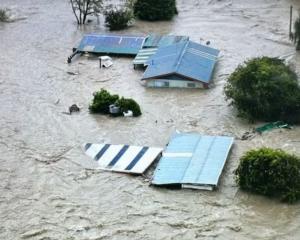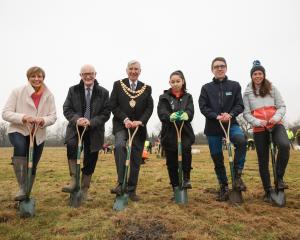

A few years ago the same question was being asked of health and safety and then legislative changes made it clear that both were going to be needed to be able to respond to the change in regulation and organisational practices. Likewise, it is expected that sustainability will follow a similar trajectory.
New legislation will make it increasingly necessary to have a role in the organisation that will develop the skills needed to respond to those regulatory requirements. Alongside this, like health and safety, sustainability will become embedded into everyday practices as that will be required to make the shift towards low carbon and therefore lower costs.
What skills are going to be required for this shift to occur? This is a question Gabriella Rutherford-Carr, a master of sustainable business student, has been asking as part of her research project.
She has interviewed a number of sustainability professionals in Aotearoa New Zealand to find out what skills are needed and how they see the role of sustainability in organisations currently.
She has found that while there is an emphasis on soft skills (including having a passion for sustainability), there are increasingly specific skills needed for sustainability roles. These include carbon measurement and management, life-cycle assessment, a good understanding of the physical aspects of climate change, risk assessment, reporting and sustainable finance related skills.
In addition, Gabriella’s research shows that sustainability professionals see their role as involving change and themselves as change agents in organisations.
This requires an understanding of the environment in which the business operates — currently and potential futures — and the ability to bring that change into the business successfully. Finally, the research shows the importance of place when thinking about sustainability.
In Aotearoa New Zealand the concept of sustainability is bi-cultural and sustainability practitioners were cognisant of te ao Maori and many reported that a solid understanding of Te Tiriti o Waitangi is essential in the enactment of sustainability practices in their businesses.
In Aotearoa New Zealand there are a few associations for sustainable business, e.g., the Sustainable Business Network and the Sustainable Business Council, both of which work at the level of the business but do offer training and networking for people working in sustainability.
These organisations, in conjunction with AUT and Oxygen Consulting, run a sustainability professionals survey of which the 2022 version is currently out for responses. In 2021 the five key insights were:
1. Organisations have strengthened their investment in sustainability through Covid-19.
2. Almost all industry sectors in New Zealand are employing sustainability professionals.
3. Sustainability drives organisational purpose and addressing climate change is the top priority now and in the future.
4. Sustainability professionals feel more empowered, are experiencing better work-life balance and greater job satisfaction.
5. Sustainability professionals are change agents and people skills are critical to development in the role.
The survey results indicate that there are more sustainability professionals being employed both across organisations and within organisations, the majority of roles being full-time. Furthermore, the key priority for sustainability is understanding and managing for climate change.
Internationally, the main association of sustainability professionals is the Institute of Environmental Management and Assessment (IEMA), which is run out of the United Kingdom and undergoing chartership. Its stated aim is to transform the world towards sustainability. The institute provides support to sustainability professionals through tools and resources and accredited course and programmes for training. There is a New Zealand branch of IEMA, one of only two outside of the UK and Ireland, which holds regular networking events and a LinkedIn group.
Globally and nationally we are seeing a shift in the role of sustainability in organisations. The practice of sustainability is increasingly essential for the strategic direction of the firm. There is now a clear need for skilled sustainability roles to lead and embed sustainability across the business.
Our training institutions — polytechnics and universities are responding to this with courses designed to provide graduates with the skills and knowledge to lead businesses for sustainable change. It’s an exciting space with continual and rapid but meaningful change.
Sara Walton is an associate professor of sustainability and business at the Otago Business School, University of Otago. Each week in this column, one of a panel of writers addresses issues of sustainability.












